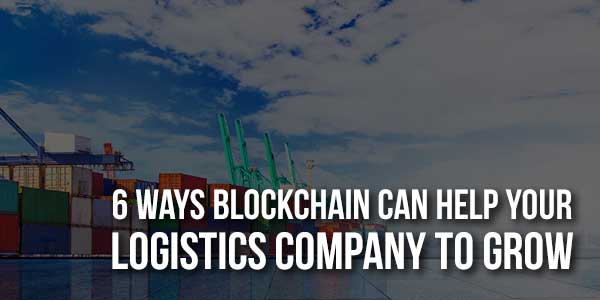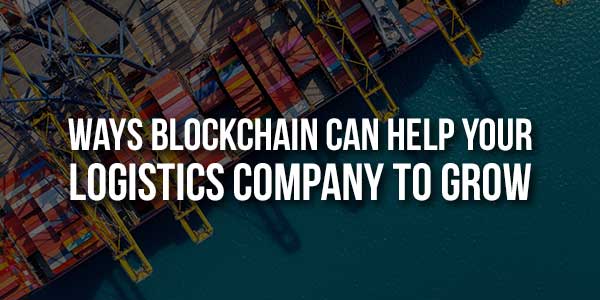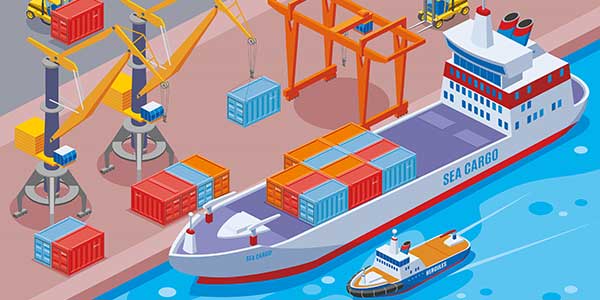
Logistics in the blockchain is one of the expanded sectors that have its own challenges and limitations. Though it appears to be a lucrative process, many shipping corporations are encountering substantial losses due to unnecessary expenditures and counterproductive practices that include cargo criminalities and more.
Therefore, managing the flow and delivery of goods or products at various levels is a challenge that requires a well-planned supply chain system together with hassle-free transportation, and to accomplish success at every stage of the supply chain system, logistics, and transportation you indeed make the most of blockchain technology.
Table of Contents
Risks Involved In Logistics And Transportation:
The supply chain completely depends on the nature of consignment, and hence operates through multiple phases and geographical locations.
As it involves numerous stages, it requires a lot of paperwork and invoices to keep a record of every activity performed in the supply chain system. If a single paper gets misplaced or lost, it can defer the timely delivery of goods or products.
To resolve such issues that have been intimidating the logistics industry for years, choosing blockchain technology will be a wise and smart decision.
What Exactly Is Blockchain?
Blockchain technology is based on cryptography, a complex branch of mathematics. Though the inner mechanism of the math behind blockchain is beyond the scope of this post we ensure that the information shared here will be quite helpful for you for sure.
Blockchain is a strategy for storing data that makes it challenging or impossible to modify, hack, or fool the system. Basically, it is a digital ledger of transactions that is replicated and allocated across the blockchain’s network of computer systems.
It is a collection of encrypted “blocks’ linked together in a public “chain.” in which we cannot change the data in one block without modifying the entire chain or receiving consent from the entire chain.
This feature makes it extremely difficult to conduct a malicious activity or simulate data and thereby saves companies from being deceived or getting their data misused in their system.
An Example Of Blockchain Technique:
Blockchain technology is simple to grasp thanks to a well-known application: Bitcoin.
Bitcoin is a cryptocurrency or digital currency that is exchanged and verified using blockchain technology.
People use Bitcoin as it eliminates the need for third-party authentication and, because it is a massive, global peer network, it also saves users from high merchant fees).
How Can Blockchain In Logistics Help?
Blockchain technology facilitates the authority to record and maintain every transaction between parties. It also enhances efficiency in the supply chain by minimizing errors and fraudulent activities.
According to the World Economic Forum, blockchain implementation can help combat supply chain obstacles and enhance sales by around 15%.
This is the reason why nowadays companies are more focused on integrating blockchain technology to reduce their paperwork and consequently expenses.
Let’s understand how blockchain can help boost productivity and profits in your logistics business.
Inventory Tracking:
Blockchain in logistics helps build a well-organized system that enables different logistics companies to keep track of their goods even at micro levels.
The technology will allow the company to backtrack if a similar incident happens in the future. Therefore, it saves time in addressing and handling such incidents and thereby limits the damage.
Enhance Cargo And Shipping:
Cargo companies, especially those that are dealing in global delivery, very well recognize the importance of blockchain technology.
The technology enables a company to simplify the logistics process while tracking the movement of its goods across international borders.
The usage of this technique helps save extra expenses encountered in freight transportation by introducing a new methodology of logistic processes.
It reduces errors, enhances delivery times, and facilitates fraud detection while decreasing prices incurred.
Invoicing And Payments:
The biggest challenge that still exists in logistics is creating a secure invoicing and payment system. The introduction of Blockchain has already resolved this problem by managing transactions effectively with the help of cryptocurrencies – Bitcoin and Ethereum.
It automatically approves a payment corresponding to an invoice generated and prevents fraud by minimizing errors safely.
It intends to simplify B2B connect payment services across international borders while offering security and transparency.
Create Fair Freight Marketplace:
Blockchain is the best approach that is deliberately used to create a fair marketplace for companies seeking to hire freight transporters. Inventory transportation across the world generally involves several shipping companies leading to enormous transactions.
Therefore, blockchain in logistics is used to keep each party accountable by keeping the budget of small and large companies alike. But if supply and demand vary, it ensures that small companies must get a fair deal.
Improves Transparency
Another major objective of using blockchain is to enhance supply chain transparency. The benefit of using blockchain systems is to ensure B2B visibility and improved credibility in logistics that help build strong bonds between businesses.
It also reduces conflicts pertaining to invoices and decreases auditing costs and helps prevent the exploitation of workers at ground level.
Resolve Conflicts:
One of the most prominent challenges in freight transportation is resolving disputes over delayed or lost cargo. To oversee such disputes of misplaced cargo many companies usually hire independent auditors.
The implementation of blockchain helps resolve customer disputes by securely tracking and storing its records.
It shares before and after delivery information with both sending and receiving parties thereby reducing the need for a third party to resolve disputes while discouraging fraud.
Many technological and procedural advancements have enhanced the ability of the logistics and commercial transportation industry in many aspects.
It has efficiently modified the logistics services —all while adapting to changes in consumer preferences and expectations regarding cost-effective and timely delivery.
Therefore, companies are now realizing the importance of blockchain technology and actively implementing it to streamline their operations and provide better services to their customers and clients.
As the goal of blockchain technology is to make businesses more profitable, secure, and efficient, therefore, the trucking and commercial transportation industries should consider implementing blockchain in logistics to help their businesses evolve with security.

 About the Author:
About the Author:












Be the first to write a comment.